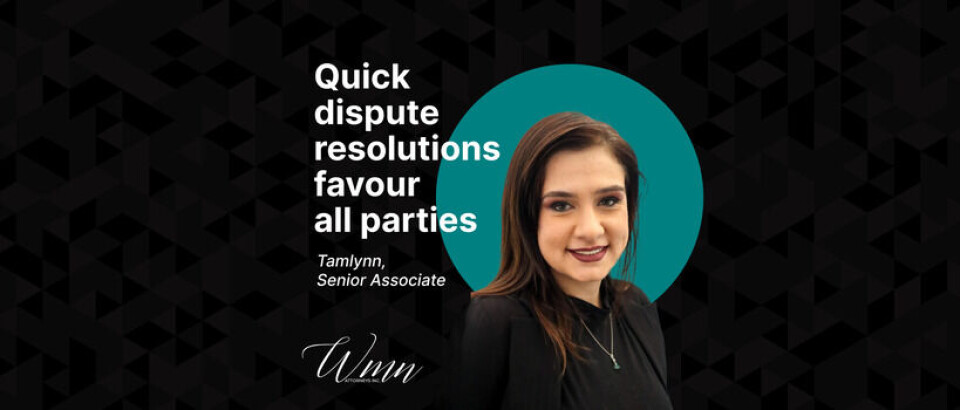The rising use of alternative dispute resolution (ADR) mechanisms – including adjudication alongside mediation or arbitration – is an important part of the South African construction industry because it serves as a mechanism in order to resolve disputes in ways that do not interrupt ongoing work or cause as little disruption as possible, says construction law expert Tamlynn Caelers-Avis of WMN Attorneys Inc.
“If there’s a payment dispute, parties in construction projects want a speedy resolution,” Caelers-Avis explained. “All the standard-form contracts we work with generally have a mediation clause or some form of amicable settlement clause which says the parties meet and discuss for a time period before starting any more formal dispute proceedings which could be perceived as acrimonious and are more likely to cause a breakdown of the relationship.”
Adjudication and mediation are increasingly popular in the construction industry, she said, with such ADR processes also supported by the South African courts because the courts are so busy they would rather parties sit around a table and have discussions.
“It’s fantastic if you can mediate a dispute and the parties can shake hands in agreement, and it's not someone making a decision on their behalf, but rather an independent third party helping them come to a decision themselves,” noted Caelers-Avis, who began her career as a litigation lawyer but has increasingly advised construction clients on a variety of ADR processes.
Cost and time are key in construction, a multi-billion-dollar industry for African nations. Earlier this year, Dr Anthony Costa, the investment lead in the Private Office of the President, said that, along with improving infrastructure, the construction industry was vital for South Africa’s economy and job creation, and plays a key role in the country’s development.
“The construction industry also plays a critical role in creating an enabling business environment,” said Costa. “A well-functioning construction sector is essential for attracting investment, supporting small- and medium-sized enterprises, and promoting innovation.”
Keeping projects going and relationships cordial, is a key goal, said Caelers-Avis. She and her colleagues at WMN Attorneys, a fast-growing, female-led firm established by award-winning construction lawyer Zama Ncgobo, advise on a variety of significant South African and cross-border construction projects, mining, energy, infrastructure, oil and gas.
Caelers-Avis also pointed out that carefully wording contracts is vital, particularly dispute resolution clauses. She explained that if parties can’t solve the disputes themselves through internal discussions and mediation, they can try adjudication which is known as being a “quick and dirty” process compared to the quasi-judicial nature of arbitration and can allow cash flow to keep going.
Caelers-Avis has been part of ICC arbitrations that were very expensive, and notes that, while clients think arbitration clauses may save time and money in comparison to going through the courts, it’s not as simple as that, given the procedures and rules involved.
“The idea of courts and a judge is entrenched in society and will never go away because there are disputes that need that,” Caelers-Avis commented. “But there’s a big shift towards ADR from what I see, and Nigeria, Egypt, South Africa and Kenya all have arbitration centres now too, which is giving the African continent an opportunity to hear matters locally.”
To join Africa Legal's mailing list please click here

